JustHouHS Community Report
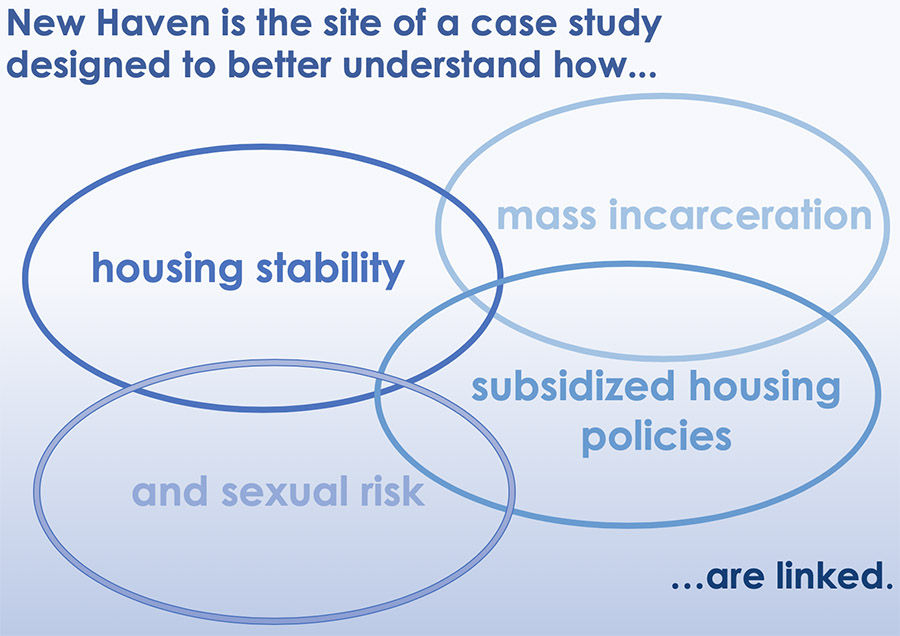
JustHouHS is a research project investigating mass incarceration, housing instability, housing policies, and how they relate to health and sexual risk.
For two years, JustHouHS is asking 400 low-income New Haven residents to take a survey every six months. Half of these participants were incarcerated a year or less from the study's start. This community report highlights some key findings from the first of the surveys.
Demographics
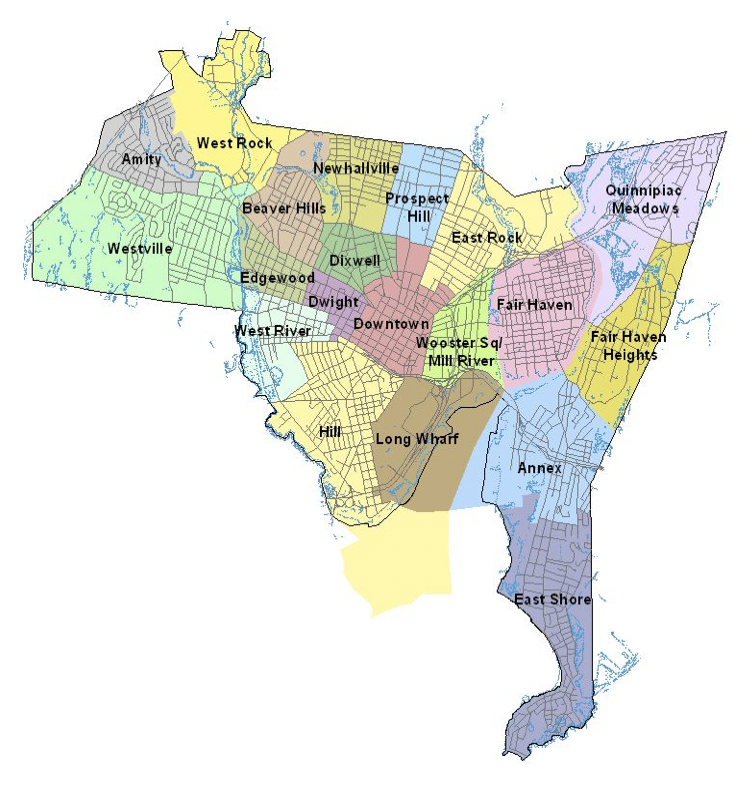
Gender
- 68% male
- 31% female
- 1% transgender/nonbinary
Race
- 63% African American
- 26% white
- 4% mixed
- 8% other
The average age of JustHouHS participants is 45.
Top 3 neighborhoods where participants reside: Hill, Dwight, and Newhallville/Dixwell.
Over 60% of participants feel their household never or rarely has enough money to afford the kind of housing, food, and clothing they need.
49% of participants worked at some point during the last six months.
CRIMINAL JUSTICE
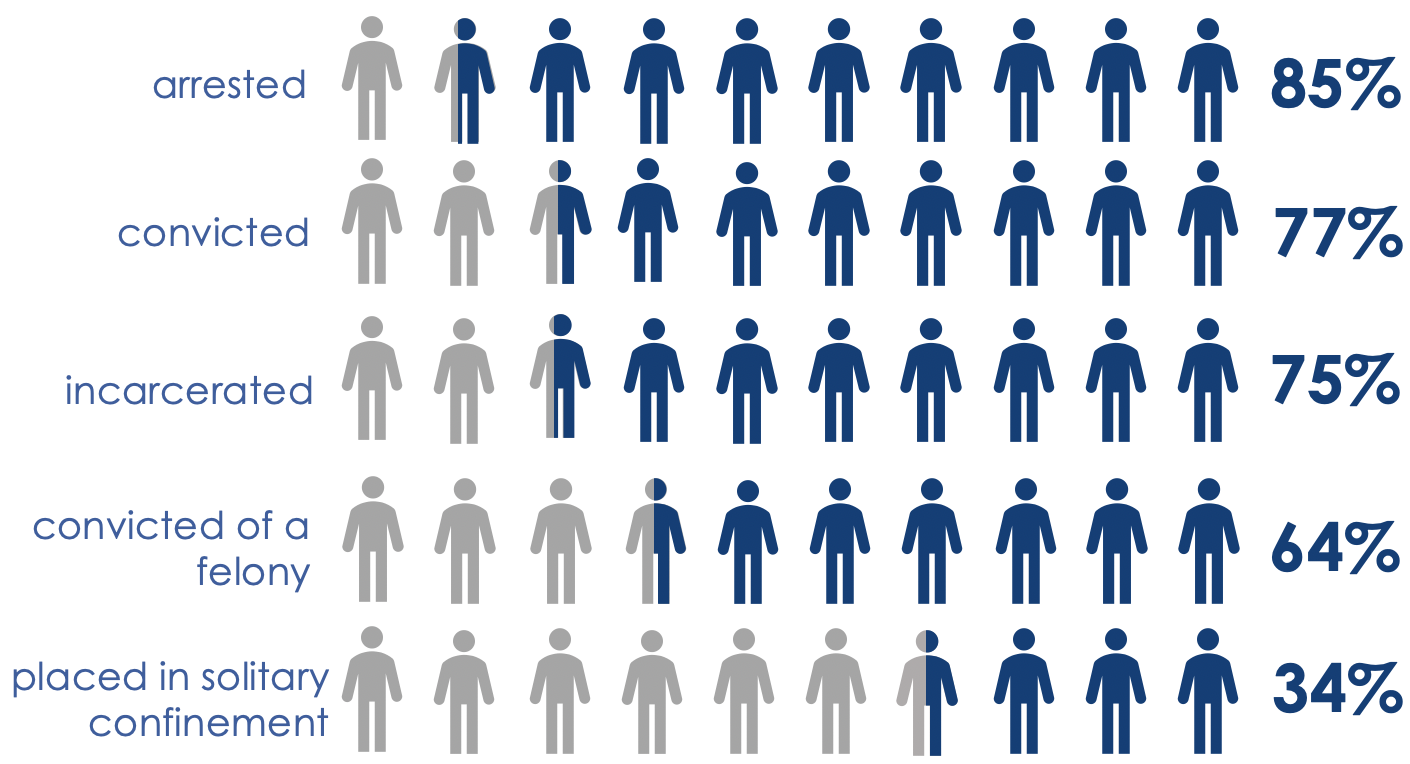
Half of the participants were recruited based on their recent incarceration. Yet many more had criminal justice involvement at some point in their lives. At the time of baseline, the majority of the participants had been arrested, convicted, and incarcerated.
The average number of incarcerations for participants who had been incaracerated was 7.23 and more than half of participants reported they had a family member who had been incarcerated. Here are some ways participants reported incarceration impacting their lives:
- 60% of participants reported that “It’s harder to get a job.”
- 43% of participants reported “I lost a job.“
-
33% of participants reported “I lost a committed relationship.”
78% of participants said they thought that the criminal justice system treats people of color unfairly.
Housing

The city’s shortage of affordable housing, together with other housing barriers, makes homelessness an ever present possibility for many.
Homelessness
- 18% of participants were homeless at the time of their survey.
- 32% reported being homeless at some point during the last six months.
- 59% reported having been homeless at some point in their adult life.
About 75% of participants are dissatisfied with their housing.
70% of participants have ever applied for housing assistance. Only 26% are currently receiving housing assistance.
| Rented place | Halfway house | Group setting | Homeless shelter, or motel | Someone else's home | Total | |
|---|---|---|---|---|---|---|
|
Never Incarcerated* |
59% |
0% |
10% |
15% |
14% |
100% |
|
Released within the last year** |
11% |
32% |
14% |
25% |
19% |
100% |
|
Released more than one year ago |
48% |
0% |
25% |
12% |
16% |
100% |
*2 that were never incarcerated responded “other”/ **2 that were released in the last year responded “other”.
Housing and Criminal Justice Involvement
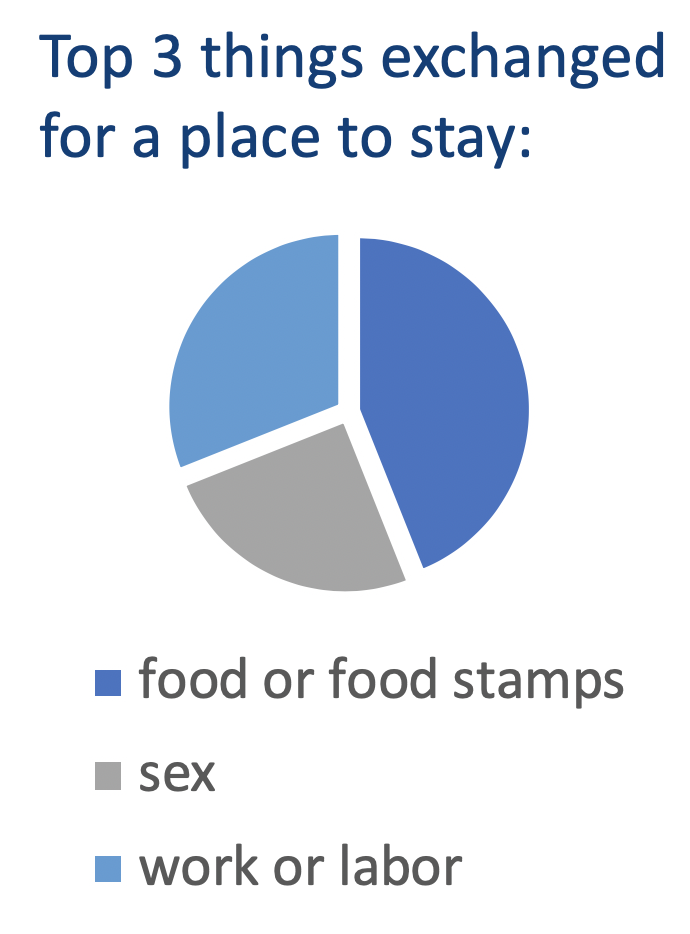
It is difficult for recently released people to find a place to live. Sometimes people exchange something other than money for a place to stay.
Nearly 20% of participants released from prison or jail in the last year have exchanged something for a place to stay.
Having a criminal record or experiencing incarceration impacted participants’ housing situation. Participants reported being denied rentals, becoming homeless, losing income, and not having the freedom to live with the people they wanted to live with. These impacts are not only felt by those with a criminal record. Partners and family members reported these negative events as well.
Health
Health insurance
- Almost 70% of participants were insured through Medicaid.
- 4% reported having no health insurance.
| Poor | Fair | Good | Very Good | Excellent |
|---|---|---|---|---|
|
less than 1% |
21% |
55% |
27% |
21% |
Top three reported physical health conditions
- High blood pressure/hypertension
- Asthma
- Chronic pain
Top three reported mental health conditions
- Depression
- Anxiety
- Post-traumatic stress disorder/PTSD
| None of the time | A little of the time | Some of the time | Most of the time | All of the time |
|---|---|---|---|---|
|
33% |
21% |
23% |
15% |
8% |
HIV Status
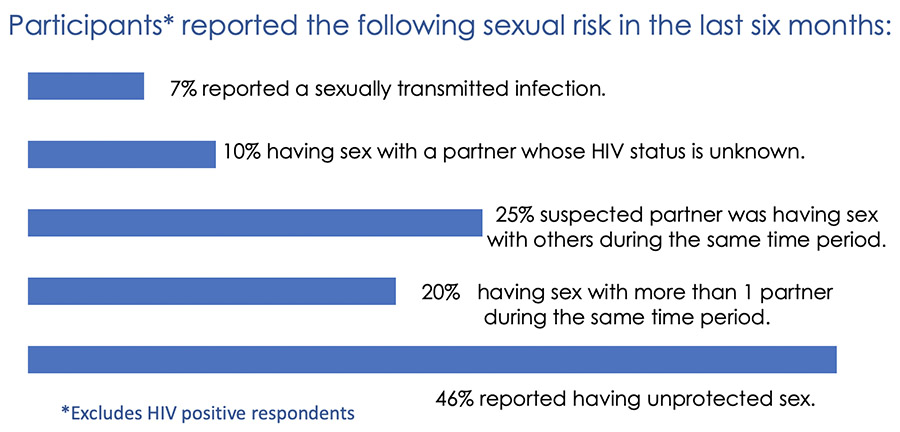
About half of the participants had unprotected sex with a partner. A number did not know their partners' HIV status. Some participants were having sex with multiple partners and/or suspected their partners were having sex with others during the same period of time.
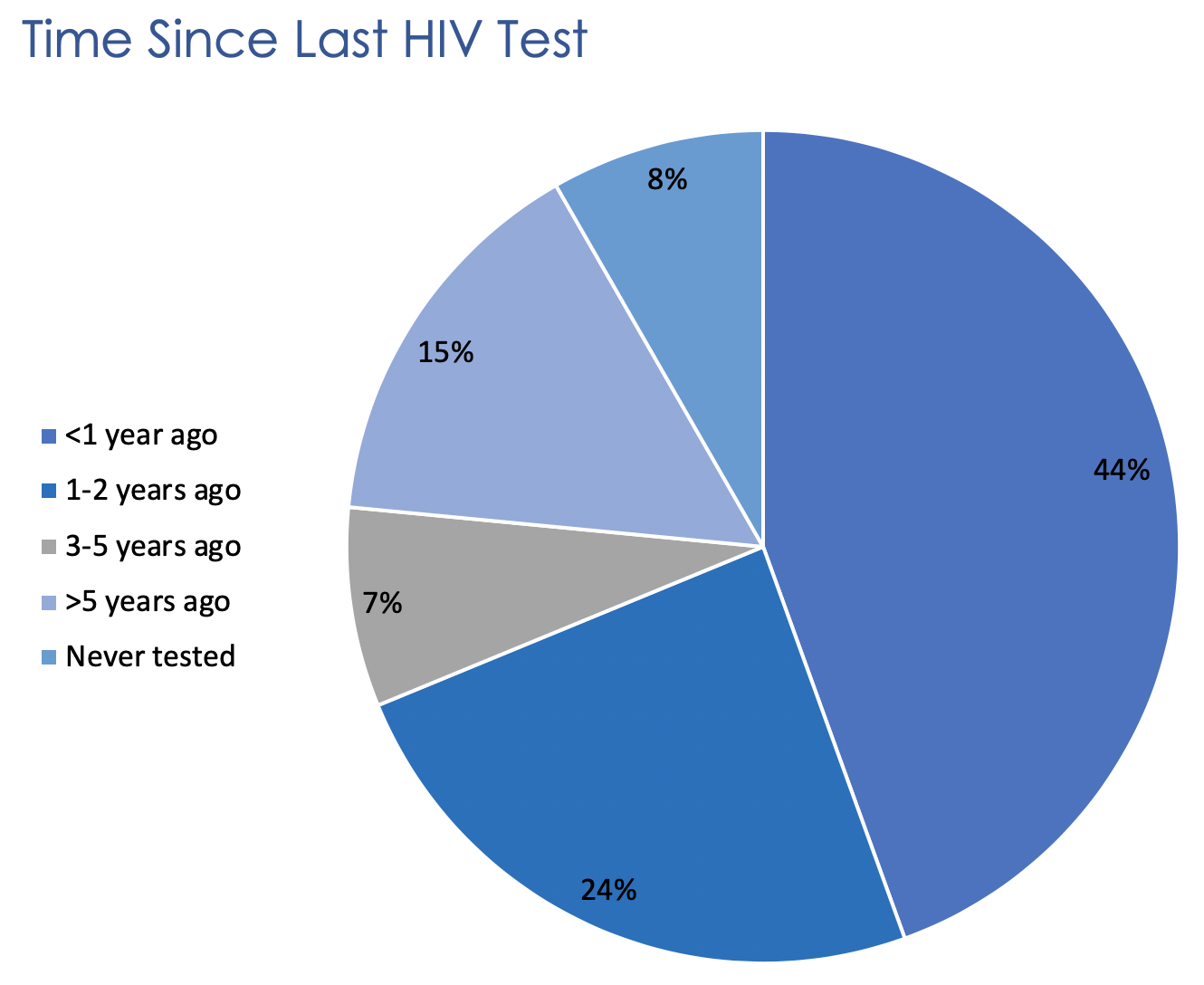
Most participants reported an HIV test in the last year, but for some, their last test was more than five years ago. Others reported never getting tested.
PrEP stands for Pre-Exposure Prohylaxis and is a pill that can be taken every day to prevent HIV infection. 77% of participants had not heard of PrEP.
What is Next?
Collecting More Data
JustHouHS will continue to collect data through follow up surveys every six months until 2020. Our goal is to understand the everyday challenges some low-income people face in New Haven, and how policies and structures and other forces beyond the individual, contribute to these challenges. With the knowledge gained, we hope to shed light on how these challenges can best be addressed.
Collaboration Opportunities
This report provides some information about the JustHouHS cohort and their criminal justice, housing and health situations. The baseline survey contained over 500 questions; follow up surveys allow the exploration of changes over time for participants. We also conduct in-depth interviews with a subset of 54 participants. If you would like to collaborate with us on a data analysis question or have specific data requests, please contact us.
Acknowledgements
The research team would like to thank study participants for their time and insights, as well as our Community Advisory Board. Board members, comprised of New Haven residents and Connecticut housing, health, and criminal justice organization employees, have provided guidance and context for this research. We are grateful for their input.
Funding
JustHouHS is a collaborative partnership between American University, Drexel University, and Yale University. This research is funded by the National Institute of Mental Health and National Institute of Allergy and Infectious Diseases (R01MH11019). It is also supported by the Center for Interdisciplinary Research on AIDS at Yale University (1609018355), the Center on Health, Risk, and Society at American University, and the DC Center for AIDS Research (P30AI117970).
Research Team During the Baseline Community Report
American University: Kim Blankenship, Aleah Goldin, Cherie Saulter, Erdal Tekin
Drexel University: Ali Groves, Jonathan Purtle
Yale University: Linda Niccolai, Danya Keene, Trace Kershaw, Alana Rosenberg, Penelope Schlesinger, Emma Tran
Contact Us
(203)764-7335
justhouhs@yale.edu